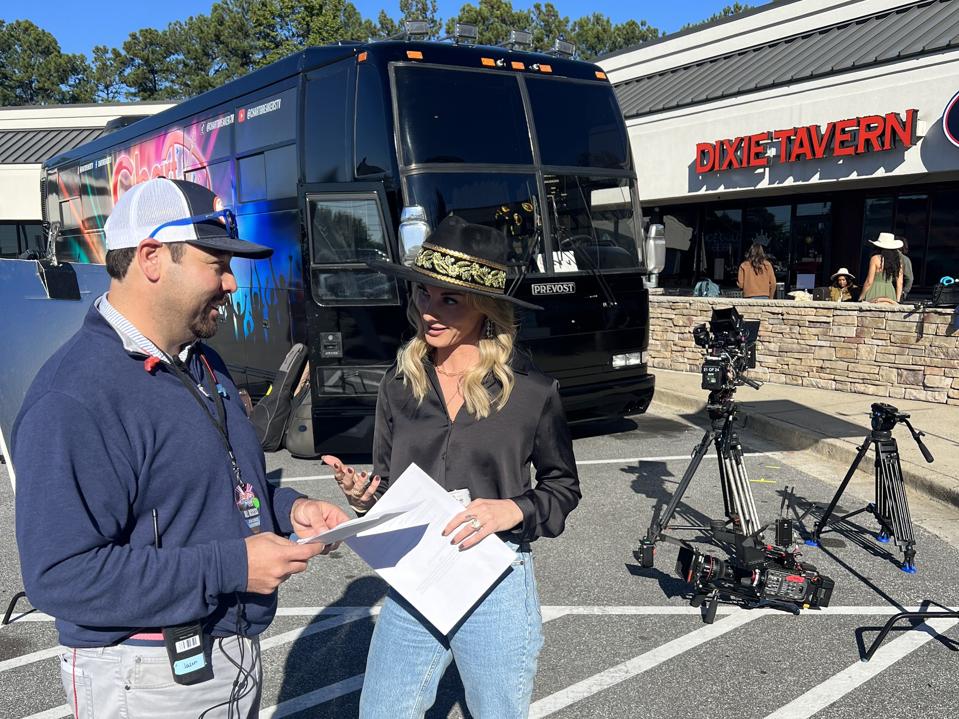In the ever-evolving landscape of the entertainment industry, the intersection of business and entertainment has given rise to groundbreaking phenomena. One that significantly impacted the music industry was the introduction of music reality television shows. Back in 2002, American Idol quickly became a cultural phenomenon, reshaping the way the public discovered and embraced new musical talent. Created by Simon Fuller, the show originated from the British show Pop Idol. What set American Idol apart was its interactive nature, allowing viewers to vote for their favorite contestants and shape the outcome of the competition.
Shows like these, coupled with the accessibility of purchasing MP3s or simply streaming from music platforms, have become a powerful medium for creating pop stars, revolutionizing the music industry, and influencing music sales. And we aren’t seeing this phenomena slow down – in the heart of Nashville’s highly competitive country music scene, Chart Breakers, a new TV series blending travel, reality TV, and competition, immerses viewers in the entrepreneurial journeys of aspiring songwriters. The show not only unveils the challenges inherent in the music industry but also offers valuable lessons that extend far beyond.
The Power of Engaging An Audience
The interactive nature of these shows, where viewers are able to vote for their favorite contestants or simply get a seemingly unfiltered glimpse into the lives of the singers, empowers audiences and makes them feel personally invested in the success of the contestants. This level of engagement transformed the music industry by democratizing the process of discovering and promoting new talent.
The winners and even some non-winners gain dedicated fan bases that support their careers long after the shows have aired.
The influence extends beyond the individual careers of its winners. These shows challenged traditional music industry dynamics by demonstrating the power of direct audience engagement. Record labels began to recognize the importance of connecting with fans and started exploring new ways to leverage technology and social media for artist promotion. Music executives benefited by having a proof-of-concept – knowing prior to signing talent, that they resonate with the public and have a built in audience, which parlays into sales, of course.
Creating Pop Stars
One of the most significant impacts of American Idol on the music industry was its ability to create instant pop stars. Contestants like Kelly Clarkson, the winner of the first season, and subsequent contestants like Carrie Underwood and Jennifer Hudson, went on to achieve immense success in the music industry. The show’s unique format allowed audiences to witness the journey of these artists from undiscovered talents to household names, forging a connection that went beyond their musical abilities.
ChartBreakers looks to follow in American Idol’s footsteps with each contestant embarking on a compelling journey, and navigating the intricate challenges of the music industry. With the opportunity to secure a notable $100,000 cash prize and a coveted record deal, these songwriters face a challenge akin to entrepreneurs striving to secure capital through persuasive pitches to investors. To win, contestants must showcase their worth as valuable investments in the fiercely competitive realm of country music. The show provides a unique perspective, offering a glimpse into the lives of aspiring songwriters. The show has some big names attached to it including judges Wyatt Durrette, Jane Ebach, and Filmore, as well as Adley Kinsman who is the CEO and Founder of Story House Media and VIRALISH, a creator collective based in Nashville.
Music Sales And The Shift To The Digital Era
The music industry’s transformative journey over the past few decades has seen a shift from physical CDs to the digital era, marked initially by the rise of MP3s and today through streaming platforms. This shift not only altered the way people consume music but also paved the way for the integration of e-commerce into the industry. The emergence of MP3s reshaped the music landscape and illuminated the pivotal role that e-commerce plays in the current music ecosystem.
One of the most tangible effects of American Idol’s impact on the music industry was the boost in music sales. Winning contestants received recording contracts and were able to release albums quickly, capitalizing on the momentum gained during the show. Fans, eager to support their favorite contestants, rushed to purchase albums and singles, contributing to the overall growth of the music market.
American Idol, and shows of its kind, acted as a catalyst for change in the music industry. By combining the elements of entertainment and business, these reality shows revolutionized the way artists are discovered, promoted, and celebrated. We continue to see this business model that clearly works in shows like The Voice, The Masked Singer, and now in Chart Breakers which will air later this year. Morgan Wallen, who has the top country song on the charts right now, was working as a landscaper in Knoxville when his mom signed him up for The Voice. While on the show, Usher told him, “You have the potential to be any type of artist that you’d like to be.”
The cross-section of business and entertainment paved the way for a more inclusive and interactive music industry, where the audience plays a pivotal role in shaping the success of new talent. These reality show’s impact on music sales and industry dynamics is a testament to the transformative power of blending creativity with strategic business acumen.

